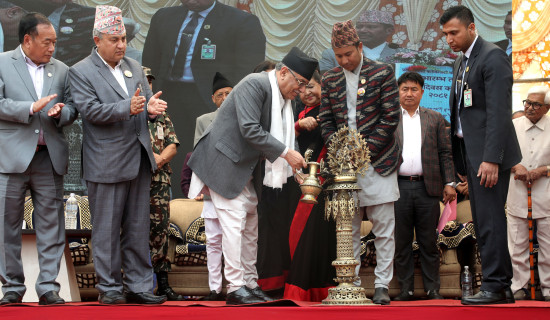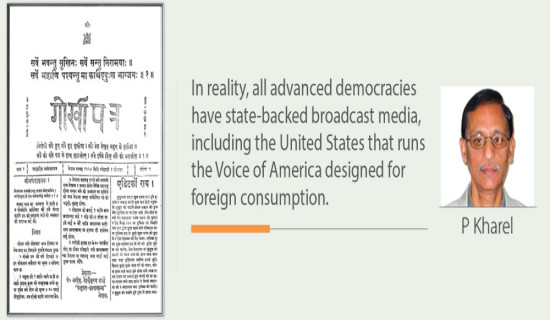- Monday, 6 May 2024
Unity For Stability
Political stability still remains elusive due to the making and breaking of the governments. Resulting uncertainty has generated mistrust among citizens. For democracy to be functional, people should have confidence in the system as envisioned by the constitution. This requires that political leaders must prioritise unity and collaboration over partisan interests. The consensus-building approach is necessary to set aside parochial differences for the greater good of the nation. To secure a nation's sovereignty and uphold its independence, freedom, and territorial integrity, patriotic forces committed to national strength must unite and chart a common path.
By embracing national interests and fostering self-respect, leaders can work together to ensure a prosperous and secure future. While celebrating the ‘Diamond Jubilee of the Establishment of the Nepal Communist Party, the call for unity and collaboration among political parties resonated with clarity and urgency. Prime Minister Pushpa Kamal Dahal Prachanda’s remarks underscored the pivotal role of understanding and consensus in driving the nation’s development and ensuring the well-being of its people. It strikes at the heart of Nepal’s enduring quest for stability, progress, and prosperity. The journey to a federal democratic republic was not easy. It was a hard-fought victory achieved through the collective efforts of diverse political forces and the civil society.
However, the warnings against discord and animosity serve as a crucial reminder that when political parties falter in their duty to cooperate, it is the Nepali citizens who suffer the most. Leaders need to reflect on why parties with similar aspirations have splintered into multiple factions, despite sharing common goals. Such divisions undermine the credibility of the political landscape and confuse the people. Political parties must embrace transparency and demonstrate tangible actions, not just words, that they are committed to delivering on their promises for the betterment of the country.
The frequent divisions within Nepal’s communist parties have been a matter of concern. As the nation marks a significant milestone in its communist movement, it is crucial to reflect on the factors contributing to these divisions. A comprehensive review could yield valuable insights, paving the way for a more unified movement that is better equipped to address the needs of the Nepali people. These divisions, if left unchecked, could hamper the collective strength and potential of Nepal’s political system. In this context, the call for unity and cooperation among political parties becomes even more urgent. It is a plea to transcend petty differences and embrace a shared vision for Nepal’s future.
It is a time to acknowledge the contributions of all political forces and work together to correct shortcomings and foster progressive ideas. There a long history of cooperation among the parties. Nepal's major political upheavals and revolutions became possible when they jointly waged struggles against the autocratic forces. But what is sorely missing is the failure of leadership to create institutions and structures necessary to realise the lofty goals of constitution and poll manifestos of the parties. They must demonstrate a collective resolve to act on their promises, providing tangible results for the welfare of people and the nation. The success of Nepal’s democratic journey hinges on the capacity of its leaders to achieve a common goal. Mutual and cooperation will enable the nation attain inclusive prosperity and happiness.

















